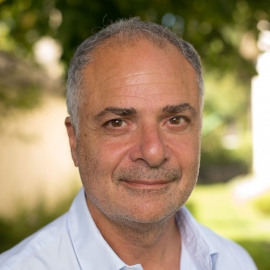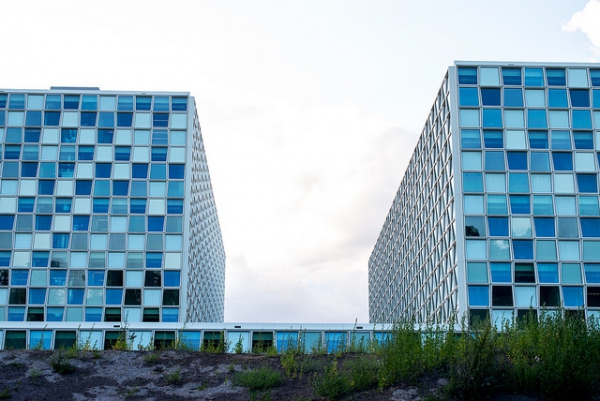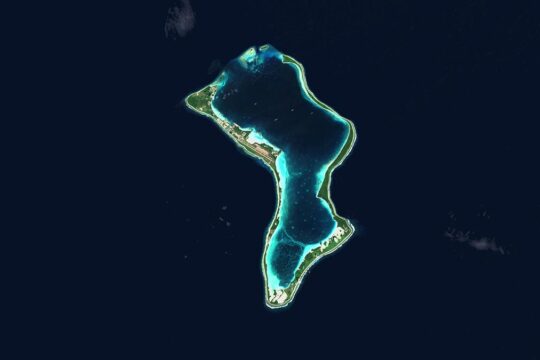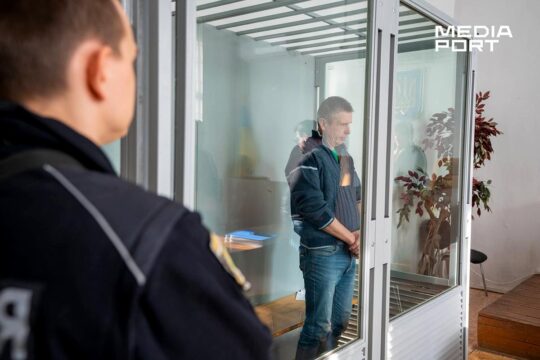For the last twenty years, the question of how to combine peace and justice has been a recurring issue in international relations. From Syria to Colombia, from former Yugoslavia to the Central African Republic, controversies around this subject are many. Should international justice condition a peace process? Or, from another point of view, what is a peace agreement worth if it is signed by war criminals? Is it possible to reconcile a moral dimension of international relations with the demands of political realism?
In recent weeks, two very different situations – Syria and Colombia – have stirred passions up again. Should Syrian President Bashar al-Assad be included in a peace deal? Has peace been reached in Colombia at the expense of justice, as Human Rights Watch and Amnesty international say? Or, as written by Phil Clark on Justiceinfo.net, have human rights organizations themselves become obstacles to peace?
Below we look at aspects of an issue that has evolved a lot in recent years with the development of international criminal justice. Looking at these developments chronologically may help us understand how tension between peace and justice has evolved.
The first crisis and the birth of “judicial diplomacy”
Tension between justice and peace was born with the first International Criminal Tribunal, for former Yugoslavia (ICTY). United Nations and European Union mediators soon clashed with the ICTY Prosecutor, Richard Goldstone. An American publication, Human Rights Quarterly, wrote of this clash. A certain Mr X. – who prefers to remain anonymous, although we can now say he was an advisor to the mediators – claimed categorically that justice is an obstacle to peace and, as a logical and tragic consequence, that the intervention of international justice prolongs wars and increases the number of victims:
“The quest for justice for yesterday’s victims of atrocities should not be pursued in such a manner that it makes today’s living the dead of tomorrow. Thousands of people are dead who should have been alive because moralists were in search of a perfect peace. The pursuit of criminals is one thing. Making peace is another.”
To that, ICTY Prosecutor Richard Goldstone replied that a peace deal signed by a war criminal was not worth the paper it was written on. In other words, justice is not negotiable. Justice, he said, is a pre-condition for peace:
“A peace masterminded by and in order to accommodate the concerns of vicious war criminals defiant of all fundamental international law prescriptions or norms is not effective or enduring.”
Here we should note the different definitions of peace behind these two positions. Mr. X. wanted a peace defined only as the cessation of hostilities, as quickly as possible, whereas Goldstone spoke of the need for a viable, sustainable peace going well beyond the end of the war. The time horizon is at the heart of the difference between Mr. X and Richard Goldstone. Should we give priority to a peace deal at any price, at the risk it might be a fools’ peace? Or should we be more demanding, at the expense of possibly extending the suffering of people in conflict zones?
We should also note that the ICTY Prosecutor did not always match his penal strategy to his words. It was not until 1999 that former Serbian president Slobodan Milosevic – a signatory to the 1995 Dayton peace accords – was indicted for acts going back to 1991. That suggests – although the ICTY Prosecutor has always denied it – that he nevertheless took account of some political parameters in his strategy, bringing him closer in practice to the position of the big powers’ médiators.
The International Criminal Court tries to set the rules
At the 1998 diplomatic conference in Rome that drew up the ICC Statutes, States had trouble determining the new rules of the game. International justice in times of war, born with the ICTY, had become a permanent reality of international relations. Nevertheless, the ardour of the Prosecutor and judges was tempered by two articles in the Statutes. One is Article 16, giving the UN Security Council the power to freeze any process before the ICC for a period of 12 months for reasons of “peace and international security” and which the African Union has twice tried – in vain – to use in the Sudan and Kenya situations.
The second one is Article 53, which gives the Prosecutor the power to freeze any judicial process if it is “not in the interests of justice, taking into account all the circumstances”. But what is meant by the interests of justice? The idea here is to protect victims and wider society by freezing a judicial process if there is a risk of endangering a fragile democracy. As in the 1980s, for example, when newly democratic Argentina froze the trials of former military junta leaders when faced with the threat of a coup d’état. Article 53 has never been used to date and there is little chance it will be. The ICC considers that its mandate is to deliver justice and that it is not the role of the Court but rather of the UN Security Council to suspend a judicial process, if this is necessary for a peace process or other reasons.
The fact that Article 16 has never been used for lack of consensus between the big powers, and that the Prosecutor does not want to restrict him/herself by using Article 53 shows that the measures taken to reduce tension between peace and justice have not really been effective.
When a Prosecutor Torpedoes a Peace Process
The most striking example of rising “judicial diplomacy” came in 2003. At the time, a pitiless war was tearing Liberia and Sierra Leone apart. After years of efforts, the United Nations managed to organize a peace conference in Ghana – the native country of UN Secretary General of the time Kofi Annan – with several African Heads of State attending. Liberian president Charles Taylor agreed to participate. At the opening of the peace conference on June 4, 2003, David Crane, Prosecutor of the Special Court for Sierra Leone, decided to unveil Taylor’s indictment for war crimes and crimes against humanity.
With this unprecedented move and in full awareness of what he was doing, the Prosecutor of a UN court was undermining a UN peace process.
The Prosecutor’s stated aim was to thwart a peace deal with Taylor because, he said, not only was Charles Taylor a horrendous war criminal but, according to information obtained by the Court, he planned to continue the war. Was he right? And is it up to an international Prosecutor to decide if peace talks are worth holding or not?
The most interesting part is what happened next. With diplomats and mediators shaken by the Prosecutor’s will to torpedo the peace process, the Western powers then offered a deal to Charles Taylor which he accepted. According to this deal, he should go into exile in Nigeria and, provided he did not interfere any more in the affairs of his country, he would never be prosecuted. Politics had reclaimed its rights. Taylor accepted but broke his promise and was finally arrested and tried in The Hague.
Thus the dynamic between justice and peace has in reality been much more complex than a simple judicial process. At the end of the day it was the combination of a judicial process and the use of Western military force serving a political goal that led first to Taylor’s marginalization and then to his trial.
By way of conclusion
One way to reduce the tension between justice and peace is a sequencing approach, in other words to introduce as many elements of justice as the situation permits at the time – including restorative justice – without threatening a peace process which is necessarily a dynamic process. History shows that the balances of power change and that criminal justice processes that are impossible to put in place in the beginning can become possible. Argentina's experience is particularly enlightening with regard to this. Argentina has over some 30 years experimented with holding trials, then abandoning them to create a Truth Commission and pass an amnesty law. It then scrapped that law several years later, relaunching trials.
The Colombian example also demonstrates that a peace process can come up with new solutions. The Bogota government and FARC rebels have respected international law by not offering amnesty to the perpetrators of international crimes. But they have set relatively light sentences of 5-8 years’ imprisonment for war criminals who confess, and 20 years for those who refuse to admit their guilt. This approach shows there is a potential for compromises to achieve both peace and a certain justice. It has, however, been criticized by Human Rights Watch and Amnesty international. At the risk of being seen as dogmatic, these organizations consider that justice has been sacrificed too much on the altar of peace.
This tension between the promoters of justice and those of peace might reflect the difference that German sociologist Max Weber pointed out between the “ethics of conviction” and the “ethics of responsibility”.






